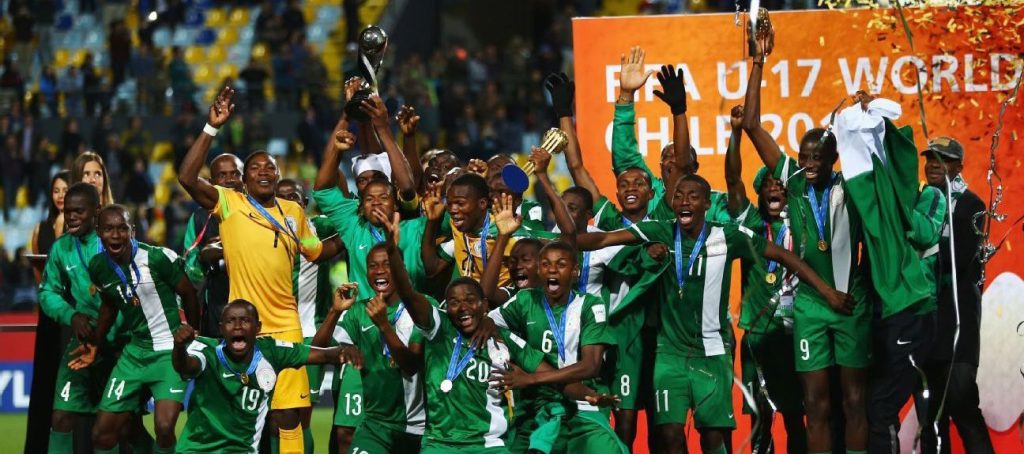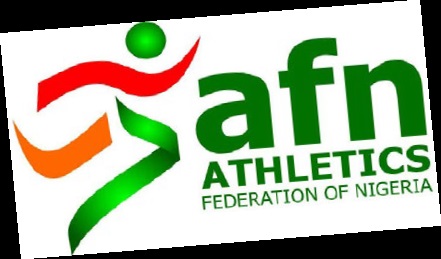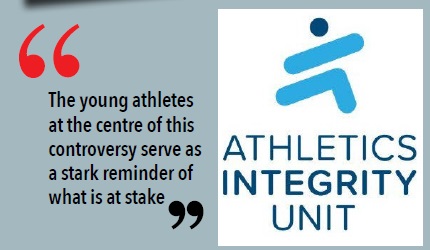July 07, (THEWILL) – The recent allegations of age falsification among Nigerian athletes bound for the World Under-20 Championships in Lima, Peru, have cast a long shadow over the nation’s athletics programme. This scandal, unearthed by the Athletics Integrity Unit (AIU), is not merely an isolated incident, but a symptom of a deeper, more pervasive issue that has long plagued Nigerian sports.
At the heart of the matter are four young athletes, each with a promising future in athletics. Yet, their achievements now stand tarnished by discrepancies in their recorded birth dates. One male athlete, a double champion in the U18 category at the 2023 African U18/U20 Championships, inexplicably has two different birth years – 2004 and 2006 – listed in official records. Even more baffling is the case of a female athlete whose documentation boasts not two, but three distinct dates of birth.
These inconsistencies are not mere clerical errors. They represent a deliberate attempt to manipulate the system, to gain an unfair advantage in youth competitions. It is a practice that has become all too familiar in Nigerian sports, particularly in football, where the nation’s success in youth tournaments has often been viewed with a mixture of pride and suspicion.

The implications of this scandal extend far beyond the individuals involved. It casts doubt on the integrity of the entire Nigerian athletics programme and raises questions about the effectiveness of age verification processes currently in place. The Athletics Federation of Nigeria (AFN) now finds itself under intense scrutiny, tasked with not only addressing these specific cases but also implementing robust measures to prevent future occurrences.
This is not a challenge unique to Nigeria. Age fraud has been a persistent issue across African sports, with countries like Ghana, Guinea, and Gambia facing similar scandals in recent years, all of which highlight the widespread nature of the problem and the need for a continent-wide approach to address it.
The root causes of age falsification are complex and multifaceted. Economic hardship plays a significant role, with the allure of professional sports contracts serving as a powerful motivator for young athletes to misrepresent their age. This is often facilitated by a lack of reliable birth registration systems in many African countries, creating loopholes that can be exploited.

Moreover, the pressure to succeed in highly competitive environments can drive athletes, coaches, and even officials to bend the rules. The potential rewards – both financial and in terms of prestige – can seem to outweigh the risks of being caught. This short-term thinking, however, overlooks the devastating long-term consequences of such actions.
The impact of age fraud on fair competition cannot be overstated. Youth competitions are designed to provide a level playing field for athletes of similar physical and mental development. When older athletes compete in these events, it not only gives them an unfair advantage but also denies younger athletes the opportunity to develop and showcase their skills. This can lead to disillusionment and potentially drive talented young athletes away from the sport.
Furthermore, the reputational damage caused by such scandals can have far-reaching effects. It erodes trust in Nigerian athletics on the global stage, potentially impacting future generations of athletes who may face increased scrutiny and scepticism, regardless of their individual integrity.
The Nigerian football scene serves as a cautionary tale. The country’s remarkable success in youth football tournaments – including five FIFA U17 World Cup victories – stands in stark contrast to the performance of the senior national team. This disparity raises uncomfortable questions about the true age of players in these youth teams and the long-term consequences of age fraud on player development.

Addressing this issue requires a multifaceted approach. The introduction of more scientific age verification methods, such as Magnetic Resonance Imaging (MRI) scans, has been a step in the right direction. These scans, which measure the fusion of growth plates in wrist bones, have proven effective in detecting overage players. However, they are not without limitations and should be part of a broader strategy rather than relied upon as a silver bullet.
Improving birth registration systems and ensuring all athletes have verifiable documentation is crucial. This is a challenge that extends beyond the realm of sports and requires cooperation between sports federations, government agencies, and international bodies. The proposal to incorporate Nigeria’s National Identity Management Card into the athlete registration process is a promising step towards creating a centralised and verifiable database.
Education and cultural change are equally important. Athletes, coaches, and officials need to understand the long-term benefits of integrity in sports. This involves not only highlighting the negative consequences of age fraud but also promoting the values of fair play and sportsmanship. Parents and local sports administrators play a crucial role in this process, as they are often the first line of defence against age falsification.
The AFN must take swift and decisive action in response to the AIU’s concerns. This should involve a thorough investigation into the cases in question, with appropriate sanctions for those found guilty of age fraud. More importantly, it should serve as a catalyst for systemic changes in how athlete ages are verified and recorded.
Transparency in this process is paramount. The AFN should communicate openly about its findings and the steps it is taking to address the issue. This transparency will be crucial in rebuilding trust, both domestically and internationally.
Looking beyond Nigeria, there is a need for greater collaboration between African nations and international sports bodies to combat age fraud. Sharing best practices, harmonising age verification procedures, and implementing cross-border checks could help create a more robust system for ensuring fair competition.
The current scandal, while deeply troubling, presents an opportunity for Nigerian athletics to address a long-standing issue head-on. By taking decisive action now, the AFN can not only salvage the reputation of its youth athletics programme but also set a new standard for integrity in African sports.

As we look to the future, it is clear that the path forward will not be easy. It will require sustained effort, resources, and a genuine commitment to change. However, the alternative – allowing age fraud to continue unchecked – is far more costly in the long run.
The young athletes at the centre of this controversy serve as a stark reminder of what is at stake. Their talents, honed through years of dedication and hard work, risk being overshadowed by questions about their true age. It is a situation that does a disservice not only to these individuals but to all young Nigerian athletes who dream of representing their country on the world stage.
Indeed, the age falsification scandal facing Nigerian athletics is a critical juncture for the sport in the country. It demands not just a response, but a revolution in how we approach youth sports. By addressing this issue comprehensively, Nigeria has the opportunity to lead by example, setting a new standard for integrity in athletics across Africa and beyond.
The road ahead is long, but the destination – a sports culture built on fairness, transparency, and genuine talent development – is well worth the journey. It is time for Nigerian athletics to face this challenge head-on, to turn this moment of crisis into an opportunity for lasting change. Only then can we ensure that the achievements of our young athletes are celebrated without question, and that Nigerian athletics can stand tall on the global stage, not just for its performances, but for its unwavering commitment to integrity.
Jude Obafemi is a versatile senior Correspondent at THEWILL Newspapers, excelling in sourcing, researching, and delivering sports news stories for both print and digital publications.







